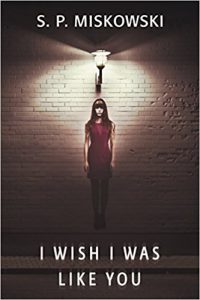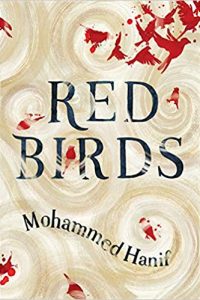John Langan Reviews I Wish I Was Like You by S.P. Miskowski
I Wish I Was Like You, S.P. Miskowski (JournalStone 9781945373787, $16.95, 249pp, tp) July 2017.
 I Wish I Was Like You, the title of S.P. Miskowski’s searing new novel, is one half of a lyric from Nirvana’s song, “All Apologies.” Its conclusion, “easily amused,” helps to define the book’s narrator-protagonist, Greta. If she is anything, it’s not easily amused. Yet there’s an additional implication to Miskowski’s choice of title, and it lies in one of the many other ways the lyric might be completed, especially in the wake of Kurt Cobain’s death: “alive.” This is a posthumous narrative, the injunctions against which are embodied in a quotation from Lee Todd Butcher, the faded novelist with whom Greta studies American crime fiction. According to Butcher, with the exception of Sunset Boulevard, the decision to relate a narrative from a dead person’s point of view is a poor one, to be avoided at all costs. Miskowski’s inclusion of this interdiction in a novel that cheerfully flouts it is an example of the self-consciousness that informs but never overwhelms the book.
I Wish I Was Like You, the title of S.P. Miskowski’s searing new novel, is one half of a lyric from Nirvana’s song, “All Apologies.” Its conclusion, “easily amused,” helps to define the book’s narrator-protagonist, Greta. If she is anything, it’s not easily amused. Yet there’s an additional implication to Miskowski’s choice of title, and it lies in one of the many other ways the lyric might be completed, especially in the wake of Kurt Cobain’s death: “alive.” This is a posthumous narrative, the injunctions against which are embodied in a quotation from Lee Todd Butcher, the faded novelist with whom Greta studies American crime fiction. According to Butcher, with the exception of Sunset Boulevard, the decision to relate a narrative from a dead person’s point of view is a poor one, to be avoided at all costs. Miskowski’s inclusion of this interdiction in a novel that cheerfully flouts it is an example of the self-consciousness that informs but never overwhelms the book.
The book is principally a riff on the Künstlerroman, with the important difference that Greta does not develop as an artist in any of the traditional ways. Born and raised in eastern Washington state, she leaves for Seattle after a disappointing ending to her class with Butcher, who reads a story she submits at the end of the semester and declares her devoid of talent. That she has been having an affair with him only rubs salt in the wound. Once in the big city, her situation does not improve. She works low-paying, dead-end jobs, from phone-sex operator to copy-store clerk. She continues writing, but fails to publish anything. She pours her heart and soul into a story for a city-wide writing contest, and is devastated when she does not merit even a personalized rejection. Finally, she plagiarizes a friend’s essay in order to gain a position at a weekly paper edited by the very woman who judged the contest Greta worked so hard to win. The theft succeeds, earning her the role of theater critic, which she soon learns grants her outsized power in Seattle’s undernourished theater scene.
Yet it’s also clear that Greta’s good fortune will not last forever. Not only do we know that she’s already dead, but in a series of vignettes spread among the novel’s chapters, we watch her in her death, approaching people who are in the midst of psychological crises, encouraging them to destroy themselves, occasionally giving them the physical nudge necessary to their self-destruction. It’s tempting to describe her as a revenant, but she has no connection to the people she seeks out; she is not enacting a personal vendetta. Rather, she seems more a version of the Japanese Onryo, a wrathful spirit capable of inflicting its anger upon the living. Interestingly, she does so through narrating her victims’ lives to them, assuming the role of their inner voices and then casting their experiences as plots which lead inexorably to their suicides. While it may appear to stretch an interpretive point, it’s hard not to see Greta, who failed at one genre form, crime, employing another, what might be called the narrative of despair, with much greater success. Greta’s posthumous actions have a particularly sinister effect: as Miskowski presents it, the afterlife for her victims is an extension of the psychic pain they suffered while alive, in which they are reduced to formless suffering. In the novel’s vision of the life to come, the dead become more of what they were while alive, amplified.
That Greta retains her form in her new existence is a sign that she has been murdered. This is one of the reasons for the account of her life she provides us: she’s trying to work out who killed her. It’s a portrait of the artist as a young murder victim. In another of the book’s ironies, the once aspiring crime writer must narrate one more example of the genre, the story of her killing. As Greta recounts her tyranny of local theatrical productions, her setting into motion of a long-range plan to discredit and disgrace her editor, the novel provides us no shortage of potential assassins – yet the solution to the mystery of who shot Greta seems less important than the solution to the mystery of Greta’s character, of what brought her to the point of relentless supernatural malice. Early in the novel, Greta expresses her admiration for Jim Thompson’s fiction, and there’s a suggestion of his anatomies of disturbed characters in the exploration of Greta’s psyche. Yet Miskowski never succumbs to the temptation to reduce her protagonist to a cartoon, a pure villain; instead, she grounds Greta’s transformation in the shortcomings of her character, in the frustrations of her dreams and daily life. In so doing, she maintains Greta’s humanity all the way to the book’s last, wonderfully dark line.
In the quartet of books comprising the Skillute Cycle, S.P. Miskowski marked out literary territory in the neighborhood of Flannery O’Connor, Carson McCullers, and Daniel Woodrell, what might be called the rural Gothic. With I Wish I Was Like You, she turns her attention to an urban setting, and finds it equally hospitable to her concerns. One of the most talented of the newer group of horror writers, Miskowski has written one of the novels of the year.
John Langan is the author of two novels, The Fisherman (2016) and House of Windows (Night Shade 2009), and two collections of stories, The Wide Carnivorous Sky and Other Monstrous Geographies (2013) and Mr. Gaunt and Other Uneasy Encounters (2008). With Paul Tremblay, he co-edited Creatures: Thirty Years of Monsters (2011). One of the founders of the Shirley Jackson Awards, he served as a juror for its first three years. He lives in New York’s Mid-Hudson Valley with his wife and younger son.
This review and more like it in the November 2017 issue of Locus.






